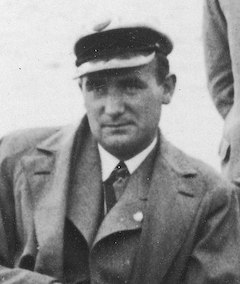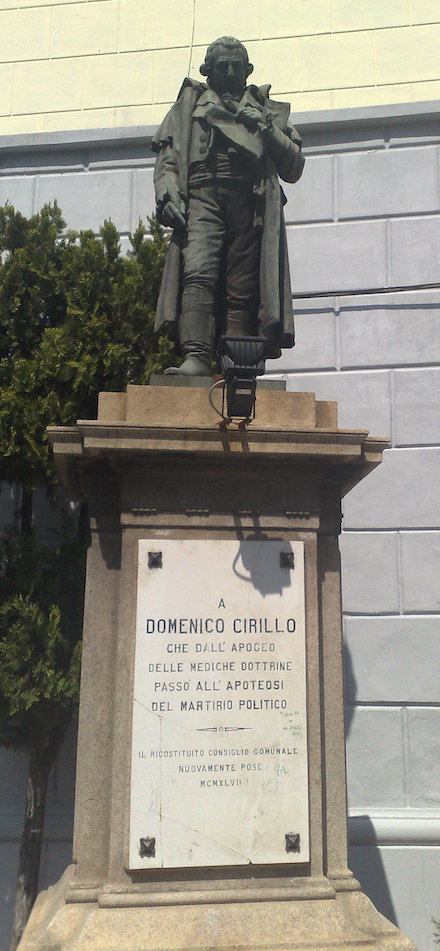Iranian Kurdish activist Ehsan Fatahian was hanged on this date in 2009 in Sanandaj, the provincial capital of Iranian Kurdistan.
 He was condemned for alleged “armed struggle against the regime” as part of the proscribed Komala party. He initially received “only” a 10-year prison term, but an appeals court elevated the sentence — and that sentence was ominously rushed to completion.
He was condemned for alleged “armed struggle against the regime” as part of the proscribed Komala party. He initially received “only” a 10-year prison term, but an appeals court elevated the sentence — and that sentence was ominously rushed to completion.
Other political prisoners staged a hunger strike in protest of his hanging, and thousands of people signed online petitions circulated by human rights organizations begging Tehran to abate the sentence.
Fatahian’s moving last statement to the world, written a few days before his hanging:
Last ray of sun at sunset
is the path that I want to write on
The sound of leaves under my feet
say to me: Let yourself fall
and only then you find the path to freedom.I have never been afraid of death, even now that I feel it closest to me. I can sense it and I’m familiar with it, for it is an old acquaintance of this land and this people. I’m not writing about death but about justifications for death, now that they have translated it to restoring justice and freedom, can one be afraid of future and destiny? “We” who have been sentenced to death by “them,” were working to find a small opening to a better world, free of injustice, are “they” also aware of what they are working towards?
I started life in city of Kermanshah, the city that my country people consider grand, the birthplace of civilization in our country. I soon noticed discrimination and oppression and I felt it in the depth of my existence, this cruelty, and the “why” of this cruelty and trying to resolve it made me come up with thousands of thoughts. But alas, they had blocked all the roads to justice and made the atmosphere so repressive that I didn’t find any way to change things inside, and I migrated to another resort: “I became a pishmarg [armed Kurdish fighter or literally “one who faces death”] of Koomaleh,” the temptation to find myself and the identity that I was deprived of made me go in that direction. Although leaving my birthplace was difficult but it never made me cut ties with my childhood hometown. Every now and then I would go back to my first home to revisit my old memories, and one of these times “they” made my visit sour, arrested and imprisoned me. From that first moment and from the hospitality (!!) of my jailers I realized that the tragic destiny of my numerous [comrades] also awaits me: torture, file building, closed and seriously influenced court, an unjust and politically charged verdict, and finally death.
Let me say it more casually: after getting arrested in town of Kamyaran on 29/4/87 [July 19, 2008] and after a few hours of being a “guest” at the information office of that town, while handcuffs and a blindfold took away my right to see and move, a person who introduced himself as a deputy of the prosecutor started asking a series of unrelated questions that were full of false accusations (I should point out that any judicial questioning outside of courtroom is prohibited in the law). This was the first of my numerous interrogation sessions. The same night I was moved to the information office of Kurdestan province in city of Sanandaj, and I experienced the real party there: a dirty cell with an unpleasant toilet with blankets that had probably not seen water in decades! From that moment my nights and days passed in the interrogation offices and lower hallway under extreme torture and beatings and this lasted three months. In these three months my interrogators, probably in pursuit of a promotion or some small raise, came up with strange and false accusations against me, which they better than anyone knew how far from reality they were. They tried very hard to prove that I was involved with an armed attempt to overthrow the regime. The only charges they could pursue was being a part of “Koomaleh” and advertising against the regime. The first “shobe” [branch] of Islamic republic court in Sanandaj found me guilty of these charges and gave me 10 years sentence in exile in Ramhormoz prison. The government’s political and bureaucratic structure always suffers from being centralized, but in this case they tried to de-centralize the judiciary and gave the powers to re-investigate (appeal?) the crimes of political prisoners, even as high as death penalties, to the appeal courts in Kurdestan province. In this case [Kamyaran’s city attorney] appealed the verdict by the first court and the Kurdestan appeals court changed my verdict from 10 years in prison to death sentence, against the Islamic republic laws. According to section 258 of “Dadrasi Keyfari” law [criminal justice law], an appeals court can increase the initial verdict only in the case that the initial verdict was less than minimum punishment for the crime. In my case, the crime was “Moharebeh” (animosity with God), which has the minimum punishment of one year sentence, and my verdict was a 10 year sentence in exile, clearly above the minimum. Compare my sentence to the minimum sentence for this crime to understand the unlawful and political nature of my death sentence. Although I also have to mention that shortly before changing the verdict they transferred me from the main prison in Sanandaj to the interrogation office of the Information Department and requested that I do a video interview confessing to crimes I have not committed, and say things that I do not believe in. In spite of a lot of pressure I did not agree to do the video confession and they told me bluntly that they will change my verdict to death sentence, which they shortly did, and demonstrated how the courts follow forces outside of judiciary department. So should they be blamed??
A judge has been sworn to stay fair in every situation, at all times and towards every person and look at the world from the legal perspective. Which judge in this doomed land can claim to has not broken this [oath]and has stayed fair and just? In my opinion the number of such judges is less than fingers on one hand. When the whole judicial system of Iran with the suggestion of an interrogator (with no knowledge of legal matters), arrests, tries, imprisons and executes people, can we really blame the few judges of a province which is always repressed and discriminated against? Yes, this house is ruined from its foundations.
This is in spite of the fact that in my last visit with my prosecutor he admitted that the death sentence is unlawful, but for the second time they gave me the notice for carrying out the execution. Needless to say that this insistence on carrying a death sentence under any circumstance is the result of pressure from security and political forces from outside of the judiciary department. [The people who belong to these circles] look at life and death of political prisoners only from the point of view of their paychecks and political needs, nothing else matters to them other than their own goals, even if it is about the most fundamental right of other human beings, their right to live. Forget international laws, they completely disregard even their own laws and procedures.
But my last words: If in the minds of these rulers and oppressors my death will get rid of the “problem” called Kurdestan [the province], I should say, what an illusion. Neither my death nor the death of thousands like me will be remedy to this incurable pain and perhaps would even fuel this fire. Without a doubt, every death points to a new life.
On this day..
- 1919: Wesley Everest lynched during the Centralia Massacre
- 1779: Robert Young
- 1942: Ernst Schrämli, Swiss traitor
- 1807: Ephraim Blackburn, low roller
- 1954: Karli Bandelow and Ewald Misera, in the Gehlen-Prozess
- 1674: Guru Tegh Bahadur
- 1806: Fra Diavolo, royalist guerrilla
- 1328: Na Prous Boneta, Beguine heresiarch
- 1880: Ned Kelly
- 1761: John Perrott, bankrupt debtor
- 1909: Will James, "the Froggie", lynched in Cairo
- 1887: Parsons, Spies, Fischer and Engel, the Haymarket Martyrs
- 1831: Nat Turner

 Jankowski (
Jankowski (

 The Javanese ulama had already been charged by the Dutch with provoking resistance to colonial rule by the time the Japanese moved in as the overseas overlord
The Javanese ulama had already been charged by the Dutch with provoking resistance to colonial rule by the time the Japanese moved in as the overseas overlord  He’s the founder of the still-extant school of
He’s the founder of the still-extant school of 
 Amid the ongoing
Amid the ongoing